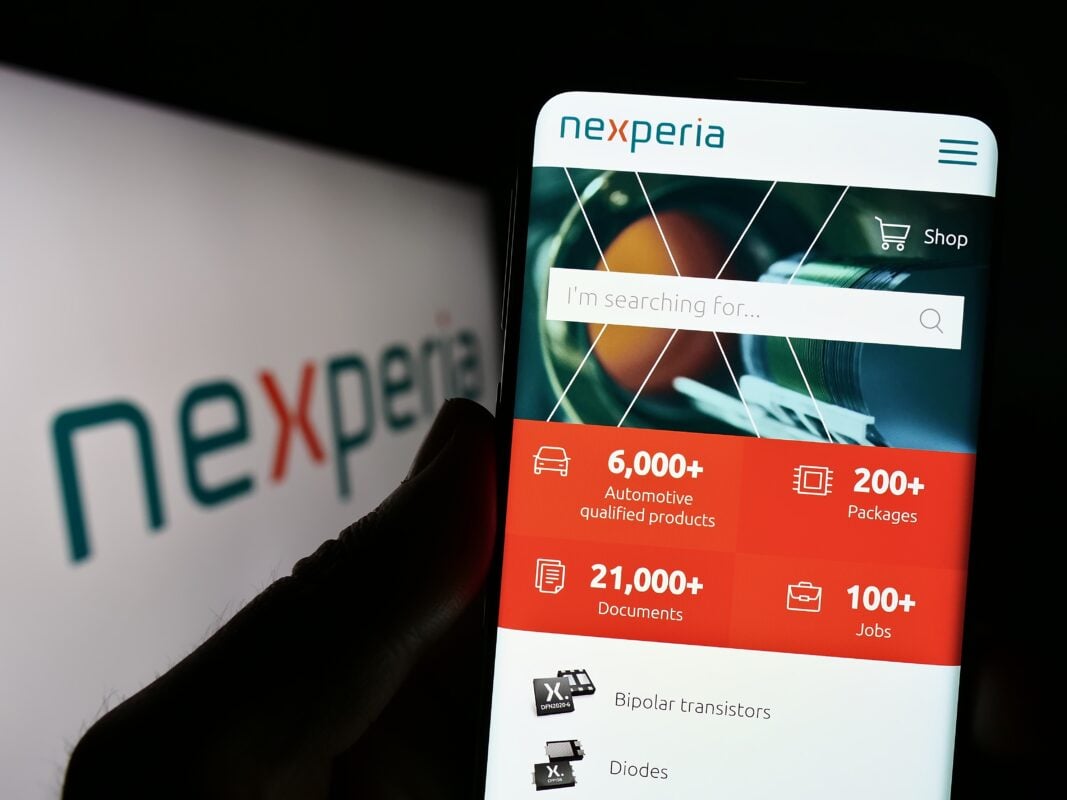TLDRs;
- The Dutch government took control of Chinese-owned Nexperia to secure Europe’s chip supply under the Goods Availability Act.
- Officials cited “acute governance issues” that could threaten economic and technological security.
- Wingtech shares plunged 10% following the announcement; its chairman was suspended.
- The move intensifies EU-China tensions amid growing competition for semiconductor control.
In a striking move that underscores Europe’s growing anxiety over semiconductor security, the Dutch government has taken control of Nexperia, a Netherlands-based chip manufacturer owned by China’s Wingtech Technology.
The decision, announced Sunday night by the Ministry of Economic Affairs, invokes the Goods Availability Act, a rarely used emergency law that allows The Hague to intervene in companies deemed vital to national and regional security.
Authorities said the intervention, which took effect in September 2025, was necessary to ensure continuity in Europe’s chip supply. Nexperia’s products are used across critical industries like from automotive and consumer electronics to telecommunications , making it a key player in the continent’s technological ecosystem.
“The action aims to prevent a scenario where essential goods produced by Nexperia become unavailable during an emergency,” the ministry said, describing the decision as “highly exceptional.”
De minister van Economische Zaken heeft op dinsdag 30 september 2025 vanwege ernstige bestuurlijke tekortkomingen bij de halfgeleiderfabrikant Nexperia de Wet beschikbaarheid goederen (Wbg) ingezet.
Nieuwsbericht: https://t.co/2vUSXgcw5j
— Ministerie van Economische Zaken (@MinisterieEZ) October 12, 2025
Governance Concerns Trigger Action
Officials noted that the decision followed months of “acute governance signals” within Nexperia that raised concerns about the company’s management and operational independence. According to the government, these issues posed “a direct threat to the safeguarding of crucial technological knowledge and capabilities” within Dutch and European borders.
In its formal statement, the ministry warned that losing control over Nexperia’s operations could endanger Europe’s economic and technological security, particularly within the automotive supply chain, which heavily depends on Nexperia’s semiconductor components.
As part of the government order, the company has been placed under temporary external management and must halt any changes to its assets, business strategy, or personnel for up to one year. Meanwhile, China responded noting that “trade issues must not be politicized.”
On the Dutch government’s control over Nexperia: China opposes overstretching the concept of national security and taking discriminatory measures targeting companies of a specific country. Market principles should be observed and trade issues must not be politicized. China will… pic.twitter.com/jSiw5pwtD2
— CHINA MFA Spokesperson 中国外交部发言人 (@MFA_China) October 13, 2025
Wingtech’s Market Fallout and Reaction
Following the announcement, Wingtech Technology’s shares plummeted 10%, hitting their daily trading limit on the Shanghai Stock Exchange. The company’s chairman, Zhang Xuezheng, was suspended from his directorial roles at both Nexperia Holdings and Nexperia BV, according to a corporate filing lodged with the exchange.
In a now-deleted statement shared on WeChat, Wingtech condemned the move as an “excessive geopolitical intervention”, claiming it was motivated by bias rather than risk-based assessment. The company insisted it had “strictly complied with all laws and regulations in all jurisdictions where it operates” since acquiring Nexperia in 2019.
Despite the takeover, Nexperia stated through a spokesperson that it continues to comply with international export controls and sanctions regimes, and maintains regular communication with the relevant authorities.
Broader Geopolitical Ripples
The Netherlands’ intervention comes at a time when geopolitical tensions over semiconductor supply chains are intensifying globally. Beijing recently tightened export restrictions on rare earth elements and magnets, crucial components in electric vehicles and chip manufacturing, a move seen as retaliation against Western trade limitations.
The takeover also follows years of strained relations between China and the Netherlands, particularly over export bans involving Dutch chip equipment giant ASML, whose advanced lithography tools have been restricted from reaching Chinese manufacturers under U.S. pressure.
In 2023, Dutch regulators had already scrutinized Nexperia’s proposed acquisition of local startup Nowi, though the deal eventually received approval. The latest development, however, signals that Europe’s stance toward Chinese investment in critical technology sectors has hardened considerably.






